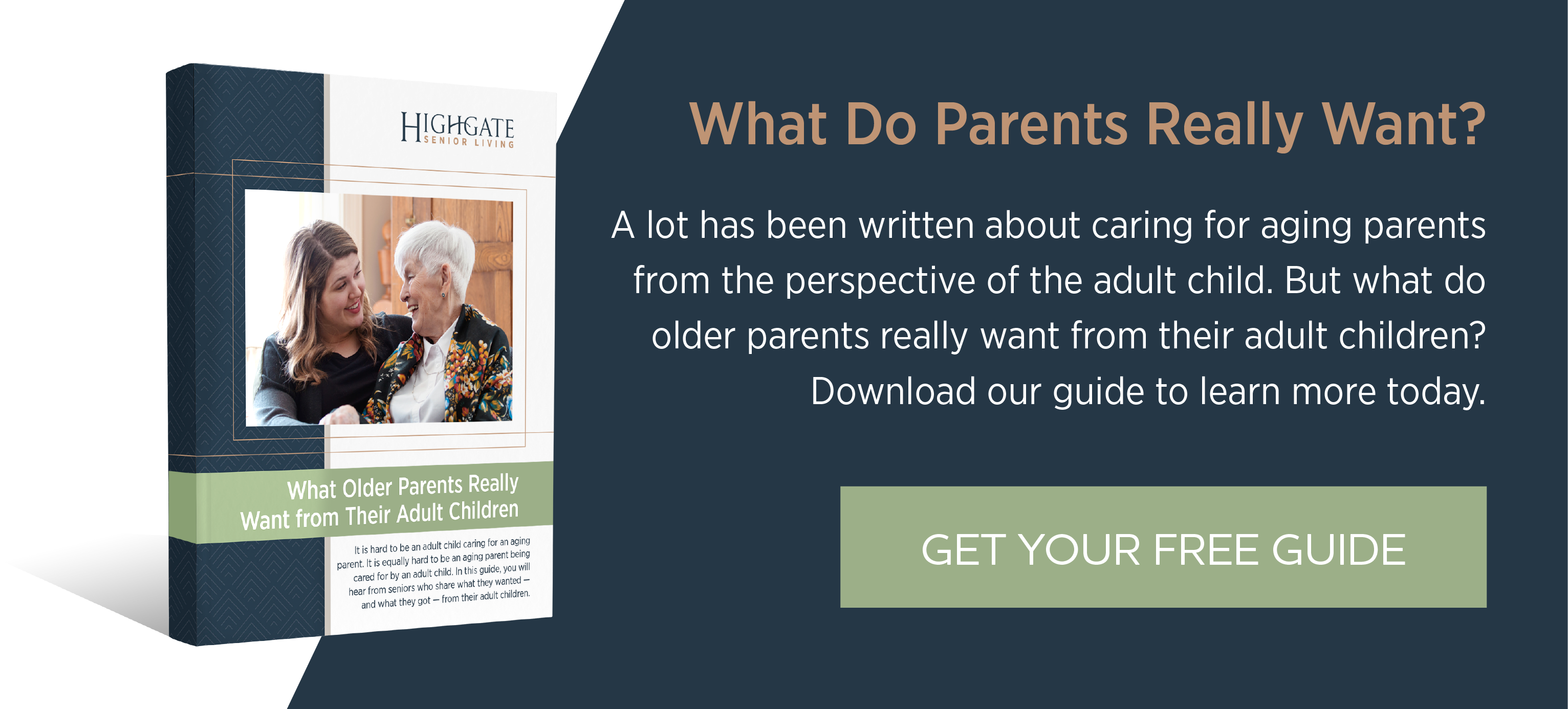.jpg?width=600&name=RESIZING%20-%20Preventing%20conflict%20(1).jpg)
According to Metlife, approximately 41% of adults age 65 and over have limitations in activities of daily living (such as eating, bathing, or dressing) and instrumental activities of daily living (like household chores, shopping, meal preparation, or balancing a check book).
Navigating your relationship with a parent as they age can feel like being dropped in the middle of a forest without a compass. One day mom might be grateful for your help and another completely frustrated with a simple suggestion to use a pill reminder box.
So, what’s the best way to avoid a heated argument with mom or dad?
Role Reversal: The Emotional Effects of Caring for an Aging Parent
Every parent/child relationship is unique. For some, helping a parent balance their check book or schedule doctor appointments is a beautiful opportunity to reconcile what may have been a strained relationship. For others, helping an aging parent becomes a gesture of gratitude. And, for some, helping an aging parent becomes an instinctive responsibility.
Balancing your relationship with a parent with the responsibilities of helping them can be outright confusing. Your parent might appreciate your help at times and be completely frustrated with you at others. Relying on adult children to complete these “simple tasks” can cause low self-esteem, stress, anxiety, and even resentment in a parent.
Conflict can arise from a parent’s denial that help is needed, a desire to be independent at any cost, or feelings that their privacy is being invaded. Emotionally, it can be hard to watch a parent age and struggle with activities that once seemed simple. But often, caregiving arguments stem from an inability to understand what a role-reversal does emotionally to a parent.
The Importance of Feeling Independent
In a study published in Research on Aging, researchers found that help from children was viewed as a mixed blessing. Parents struggled with a desire to be independent yet appreciating help from their children because of the desire for connection.
Regardless of your definition, being independent means being able to take care of your own needs and to make and assume responsibility for your decisions.
Studies show that seniors with a sense of purpose in life are less likely to develop memory loss, disabilities, heart attacks, or strokes and may live longer than people without this kind of underlying motivation.
As we age, the things that bring purpose in our life change. At one point, a career may have been the driving force. At another, raising children. But after retirement, and once kids are grown, gone and have families of their own, being independent often becomes the single contributing factor to feeling a sense of purpose and accomplishment.
Tips for Navigating the Parent/Child Relationship After a Role Reversal
Perhaps the most difficult part about a role reversal is how to provide guidance and a safe environment for your parent while trying to respect your parent’s desire to be independent.
When it comes to making decisions like taking the keys away, managing medications, good nutrition, or home safety, it can feel patronizing and disrespectful to even bring it up, let alone intervene in the situation. Here are a few important tips for navigating your way through:
- Involve your parent as much as possible in making decisions. Options are usually received better than being told what you must do.
- Listen, listen, listen. Create a safe space for parents to share their fears, concerns, feelings, and desires. Keep the line of communication open.
- If you are at an impasse, compromise.
- Don’t “parent the parent”. Even if you are the source of emotional, financial or physical support for a parent, your job is not to “raise them”.
Research shows that parents want to be helped without losing their independence and would prefer that their children’s attention be voluntary and based on affection rather than duty.
Looking for more advice to support an aging parent? Download our eBook What Older Parents Really Want from Their Adult Children.
How Assisted Living Promotes Independence
If supporting your parent as they age has become more challenging than rewarding, it may be time to consider how a senior living community can allow you to spend more quality time with your parent, while allowing them to receive the assistance they need.
Contrary to the stigma, moving a parent to assisted living may be the perfect way to maintain a strong relationship with your parent while alleviating the stress of household chores, meal preparation, managing medications and more.







